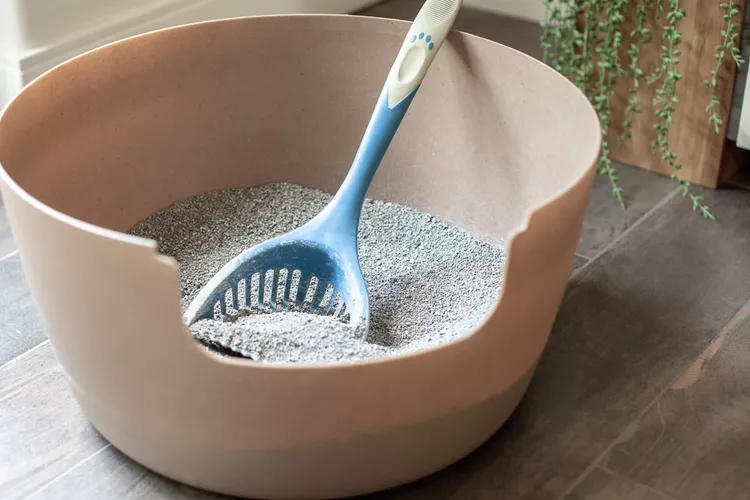How to Dispose of Cat Litter

How should you dispose of cat litter? Similar to the old idiom of what goes up must come down, what goes in must come out. The perks of owning a cat can revolve around their independence and compulsion to be clean and live in a clean environment; however, even the cleanest cats need to use the facilities.
Ask any cat owner and they will undoubtedly tell you that their least favorite chore related to caring for their feline is cleaning the litter box. It's a pain, it's smelly, and litter isn't exactly the lightest thing on the planet. It's also a necessary evil for any home with a happy cat. It begs the question: what is the best way to deal with a dirty litter box?
Put It in the Trash
This method is a tried-and-true method and the best way to dispose of your used cat litter. Litter boxes should be scooped at least once a day. Use a litter scoop to sift out urine and stool clumps and place them in a small trash bag or litter disposal bag. Once all the boxes in your house are scooped, tie off the garbage bag in a knot. To prevent odor and bacterial leakage, double bag your scooped litter. Place it in an outside trash can with a tight-fitting lid. Be sure to use a heavier-duty garbage bag because, again, litter, especially clay litter, is dense and can quickly get heavy.
Do not scoop cat litter into a trash can and then let it sit there. Not only can this get stinky after some time, but bits of cat litter dust and contaminated cat feces can enter the air every time the can is opened. Also, never dump used cat litter outside.
If you live in a rural area you may have a burn pile or burn barrel for your trash. Clay litter, though, does not burn well. Instead, it will simply collect at the bottom of your pile. Some biodegradable litters may be burnable, but there is always a possibility of toxins that can become airborne in the process.
Aren't Some Litters Compostable?
The very first compostable litter was actually a type of clay called Fuller's clay. American businessman Ed Lowe realized that since this clay can absorb its weight in water, it would make a great substrate for cats to do their business in. Since Lowe's original eureka moment in 1947, a variety of different materials have been used for different kinds of cat litter. Clay is no longer the only option. There are different biodegradable and environmentally friendly substrates, from compressed paper to corn to wheat. Some sources like these biodegradable options because, since they are biodegradable, they can be composted. However, there are real concerns with this.
Cat feces can carry things a lot scarier than bacteria like E. coli. Cats that are infected by the protozoal parasite Toxoplasma gondii readily shed this parasite in their stool. Once shed into the environment, it can easily infect other animals and people as well. Some sources say that composting biodegradable cat litter for use in flower gardens only, never vegetable, is fine, it's not recommended to be so cavalier about something that could be a potential pathogen.
Warning
Toxoplasmosis doesn't cause clinical symptoms in most healthy adults, but if you contract it while you are pregnant, the parasite can cause complications to the fetus.
What About Flushing?
Clay-based litters are not flushable. The clay can wreak havoc on your plumbing. Some biodegradable types of litter, though, purport to be flushable on the packaging. Should you flush used cat litter, though? Flushing urine clumps is one thing, but it's not recommended to flush stool. This is for the same reason that it's not recommended to compost used cat litter. Even with modern wastewater treatment systems, T. gondii and other intestinal parasites are often not caught and can stay in the water supply.
Cat litter itself may have come a long way since its humble beginnings in 1947 from nonclumping to clumping, unscented to scented, and clay to biodegradable. Picking the right litter for your cat can be overwhelming (your cat will let you know if they like their litter or not based on how reliably they use it and how much they dig in it).
Knowing what the best thing to do with your used cat litter, though, has remained the same for centuries. No need to overcomplicate it; used cat litter goes in the garbage.